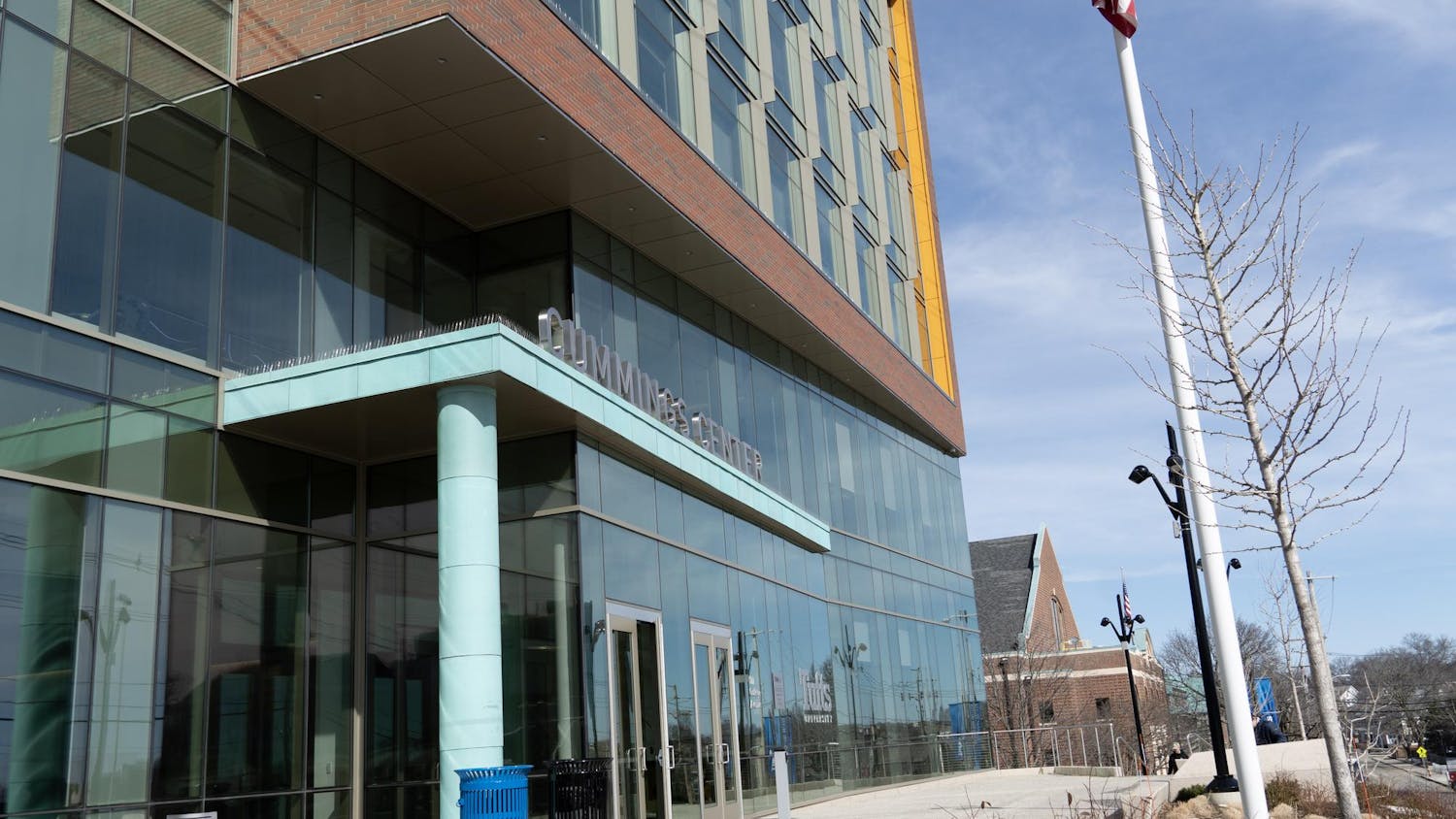Dr. Talithia Williams, a renowned statistician and TED Talk speaker, discussed her unique perspective in the fight against health disparities in her most recent lecture at Tufts, “Data Driven Solutions for Eliminating Health Disparities,” jointly presented by the School of Engineering’s Diversity, Equity, Inclusion, and Justice Colloquium Series and Tisch College’s Solomont Speaker Series.
Celebrated for her captivating TED Talk, “Own Your Body’s Data,” and her book “Power in Numbers: The Rebel Women of Mathematics,” Williams has dedicated her career to demystifying mathematics, particularly in STEM education. Her education at Spelman College and Rice University shaped her passion for statistics, as well as her background at NASA and the National Security Agency.
Drawing on data and statistics, Williams highlighted the multifaceted causes of health disparities, including poverty, racism, lack of understanding, language barriers and inadequate access to healthcare. Her research underscores that 80% of an individual’s health and well-being is linked to social and economic factors, the physical environment and health behaviors.
She explained that there is only so much a physician can do to help someone when they live in conditions that work against their health.
“85% of physicians report that unmet social needs lead to poor health outcomes,” she said. “But only 20% are confident in their ability to address those needs.”
She also noted that the needs of patients cannot be met by their doctors alone and further explained doctors’ thought processes when attempting to help patients from underprivileged backgrounds.
“It doesn’t matter that I’m telling you to eat better because food isn’t within a 50-mile radius of you … [care providers] are not able to help with the issue,” she said. “They see the problem, they recognize it, but what can the physician do to actually address that problem? They’re not empowered to address it.”
Analyzing leading causes of death by ethnicity, Williams outlines heart diseases and cancer as predominant concerns for everyone. She emphasized three strategies for eliminating health disparities: appreciate, aggregate and train the next generation.
Her first strategy, appreciation, emphasizes the importance of acknowledging where we obtain our data from. She said this is vital to creating a learning health system, which shares data from patient experiences back to clinicians, families and executives to help improve health equity.
Williams emphasized the effectiveness this strategy had during the COVID-19 pandemic, during which people began sharing medical data at rates they’d never done so before.
“You probably posted a picture of you with a Band-Aid on like, ‘I got my first shot. I got my second shot,’” she said. “All of a sudden, we were just excited to share our health data in a way that we hadn’t before as a country and as a world.”
She explained that being willing to share this data can help others see the power of getting vaccinated, by showing the data and proportions of who was positively versus negatively affected.
Her second proposal, aggregate, involves building partnerships in the face of complex challenges, particularly between patients and practitioners, and giving patients the authority and power to take ownership of their data. This not only builds trust between both parties but also helps patients better understand their health conditions, which Williams explained through an anecdote with her father.
“Because of what this Black doctor said, who wasn’t even his primary care physician, … [my] dad had us bringing him fruit smoothies every day and making sure he was eating healthy,” she said. “We really didn’t expect it and it had to do with him changing his diet because of his interaction with the doctor. And so that personal connection is really important because at 80-something years old, he’s changing his whole perspective about health and about food because of this connection he had made.”
Along with building stronger connections with medical personnel, Williams also believes helping everyone better understand the reasoning behind medical decisions will help eliminate health disparities. She believes it is important to encourage Americans, especially women of color, to break into STEM fields which they have historically been excluded from. She hopes that this will allow more people to understand the mathematical reasoning and studies behind modern vaccines and enhance the patient’s medical decision-making.
She highlighted how the lack of inclusion in STEM fields may have led to less motivation to get vaccinated in the past.
“As [the past] generation has come up and now we say ‘Here’s a vaccine we want you to take,’ they’re like ‘I don’t know, I don’t trust it because I was not a part of the science. I wasn’t a part of the mathematical decision-making because I’ve been pushed out of those disciplines,’” she said.
She also explained that not everyone needs to be studying science to receive more equitable healthcare.
“It’s not that I’m trying to convert them to all majors in engineering, or [that] I need them to be mathematicians,” Williams said. “I just need them to know that they can, and to know that it’s an option for them no matter what they do.”






